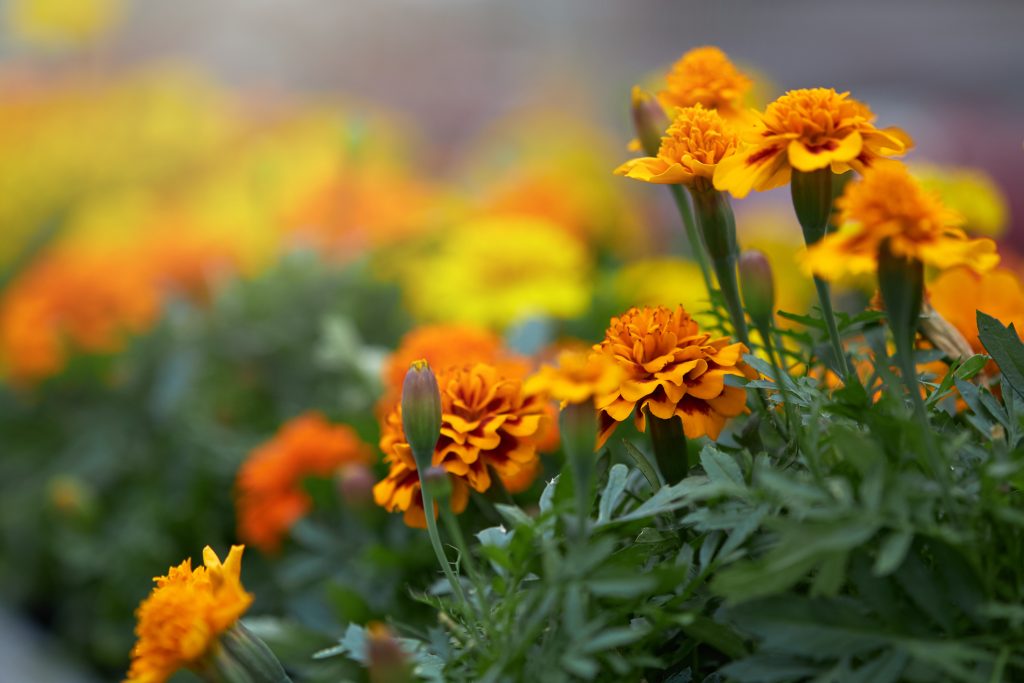
Introduction: Marigolds, scientifically known as Tagetes, are vibrant and versatile flowers that can add a splash of color to any garden or landscape. With their cheerful blooms and easy-growing nature, marigolds have become a popular choice for both beginner and seasoned gardeners. In this comprehensive guide, we will explore everything you need to know about growing marigolds, including essential tips and tricks to ensure a successful and thriving garden.
Table of Contents
Selecting the Right Marigold Varieties:
Marigolds come in various sizes and colors, offering a wide range of options to suit your preferences. Choose from the popular African marigolds (Tagetes erecta) with large, showy blooms, or the French marigolds (Tagetes patula) known for their compact size and diverse color palette. Consider factors such as height, flower type, and growth habit when selecting the right marigold varieties for your garden.
Providing Optimal Growing Conditions:
Marigolds thrive in full sunlight, so choose a location that receives at least 6-8 hours of direct sunlight each day. They prefer well-draining soil enriched with organic matter. Before planting, amend the soil with compost or well-rotted manure to improve its fertility and drainage.
Planting and Care Tips:
Start marigolds from seeds indoors 4-6 weeks before the last frost date or directly sow them into the garden once the soil has warmed up. Plant the seeds at a depth of ¼ inch and space them according to the specific variety’s requirements. Water the plants regularly, keeping the soil evenly moist but not waterlogged. Mulching around the plants helps conserve moisture and suppress weed growth.
Dealing with Pests and Diseases:
Marigolds are relatively resistant to many pests and diseases, making them a low-maintenance choice. However, keep an eye out for common issues like aphids, snails, and powdery mildew. Implement preventive measures such as companion planting, proper spacing, and regular inspection to minimize pest and disease problems.
Harvesting and Seed Saving:
As marigolds bloom, you can enjoy their vibrant flowers in your garden or use them for decorative purposes. Deadhead faded blooms regularly to encourage continuous flowering. Additionally, marigolds produce seeds that you can save for future plantings. Allow the flowers to dry on the plant, collect the seeds, and store them in a cool, dry place for next season.
Benefits of Marigold Plant
Marigold, a versatile and beneficial plant, offers several home remedies that align perfectly with Boncose’s focus on natural healing. Here are a few noteworthy remedies:
- Skin Healing: Marigold’s anti-inflammatory and antiseptic properties make it an excellent remedy for skin conditions. Create a soothing marigold-infused salve or wash to relieve skin irritations, minor burns, and cuts. The plant’s healing properties can promote faster recovery and minimize the risk of infections.
- Digestive Aid: Marigold tea can be used to alleviate digestive discomfort. The tea’s mild flavor and calming properties help soothe an upset stomach, ease indigestion, and relieve bloating. Enjoy a cup of marigold tea after meals to support healthy digestion.
- Eye Care: Marigold’s gentle and cooling effects make it beneficial for eye care. Prepare a marigold eyewash by steeping marigold petals in cooled boiled water. This natural eyewash can help relieve eye fatigue, reduce redness, and soothe eye irritations.
- Wound Healing: Marigold poultices or compresses can accelerate the healing of wounds, cuts, and bruises. The plant’s antimicrobial properties help prevent infections while its soothing effects promote faster tissue regeneration.
- Menstrual Support: Marigold tea is known for its ability to ease menstrual discomfort. Sip on a warm cup of marigold tea during menstruation to help alleviate cramps and reduce inflammation.
Embracing these marigold-based home remedies in line with Boncose’s natural healing philosophy allows you to harness the plant’s therapeutic benefits for various health concerns. Always remember to seek professional advice and consult a healthcare practitioner before using home remedies, especially if you have specific health conditions or are taking medications.